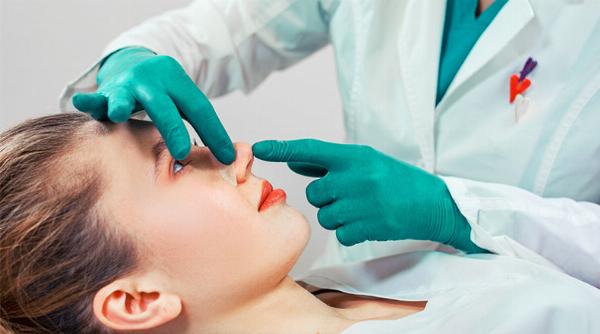How to Prepare for Rhinoplasty Surgery

Strong 8k brings an ultra-HD IPTV experience to your living room and your pocket.
Rhinoplasty, commonly referred to as a "nose job," is a surgical procedure aimed at improving the aesthetic appearance of the nose or correcting functional issues. As one of the most sought-after cosmetic surgeries worldwide, rhinoplasty has gained immense popularity in Dubai, an epicenter of advanced medical care and aesthetic enhancement. Preparing for this operation requires careful consideration and planning to ensure optimal outcomes. Herein, we outline essential steps to prepare for Rhinoplasty in Dubai.
Consultation with a Qualified Surgeon:
The first and foremost step in preparing for rhinoplasty is to schedule a comprehensive consultation with a qualified and experienced plastic surgeon. During this initial meeting, the surgeon will assess your facial structure, discuss your aesthetic goals, and evaluate any functional concerns related to your nasal passages. It is imperative to communicate openly about your expectations and desired outcomes. The surgeon will provide a thorough examination and explain the surgical options available, including open and closed rhinoplasty techniques.
Medical Evaluation and History:
Before undergoing rhinoplasty, it is vital to provide your surgeon with a complete medical history. Be prepared to discuss any pre-existing health conditions, allergies, or previous surgeries that may impact the procedure. Your surgeon may recommend necessary medical evaluations, including blood tests or imaging studies, to ensure your suitability for surgery. Patients with certain medical conditions, such as bleeding disorders or respiratory issues, may require additional precautions or alternative treatments.
Preoperative Instructions:
Once the surgical plan is finalized, your surgeon will provide detailed preoperative instructions. Adhering to these guidelines is crucial for ensuring a safe surgery and reducing the risk of complications. Common recommendations may include:
Avoiding Medications:
Discontinue the use of blood thinners, non-steroidal anti-inflammatory drugs (NSAIDs), and certain herbal supplements at least two weeks prior to surgery, as these can increase the risk of bleeding.
Smoking Cessation:
If you smoke, it is recommended to quit at least several weeks before the surgery, as smoking can impede healing and increase complications.
Diet and Hydration:
Maintain a balanced diet and stay hydrated. Your surgeon might recommend limiting food intake before the day of surgery as per their specific preoperative guidelines.
Arranging Support and Logistics:
Rhinoplasty is typically performed under anesthesia, which means you will need someone to accompany you to the hospital or surgical center. It is advisable to arrange for a responsible adult to drive you home following the procedure. Additionally, prepare your recovery space by ensuring you have comfortable seating, easy access to essentials, and help on hand for the first few days post-surgery.
Understanding Recovery Expectations:
Having a realistic understanding of the recovery process is essential. Although many patients return to regular activities within a week, complete healing may take several months. Swelling and bruising around the nose and eyes are common and should be expected. Discuss pain management options with your surgeon, as they may prescribe analgesics to manage discomfort during the initial recovery period.
Preparing for Postoperative Care:
Postoperative care is critical for achieving the desired results. Discuss with your surgeon what you should expect in the days and weeks following surgery. Key considerations include:
Scheduled follow-up appointments are crucial to monitor healing and assess the results.
Keeping the surgical site clean and following care instructions to reduce the risk of infection.
Avoiding strenuous activities, including exercise, for several weeks to minimize swelling and ensure proper healing.
Conclusion!
Preparation for rhinoplasty surgery in Dubai involves a comprehensive understanding of the procedure, careful planning, and adherence to medical guidance. By following these steps, patients can enhance their surgical experience and improve the likelihood of achieving their desired aesthetic goals. Ultimately, investing the time and effort in proper preparation lays the foundation for a successful outcome and a gratifying journey toward enhanced self-confidence.
Note: IndiBlogHub features both user-submitted and editorial content. We do not verify third-party contributions. Read our Disclaimer and Privacy Policyfor details.



